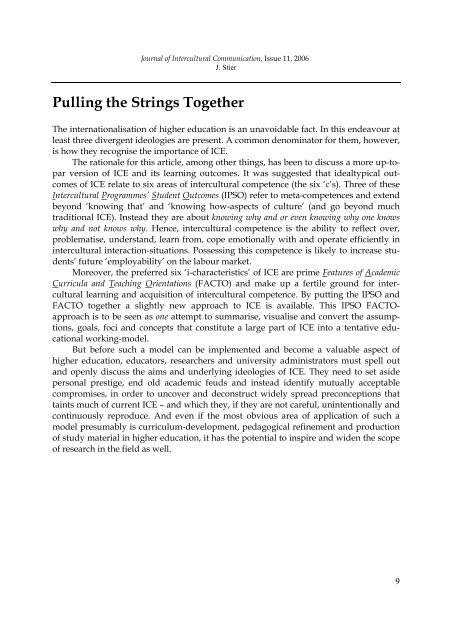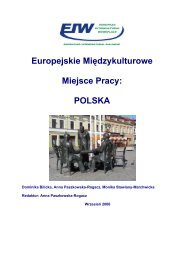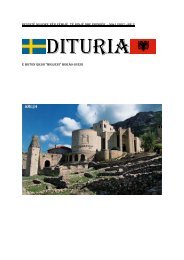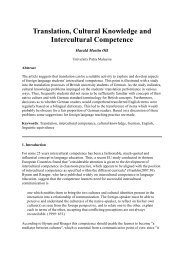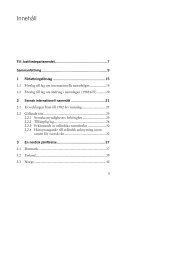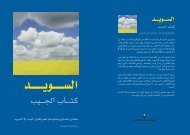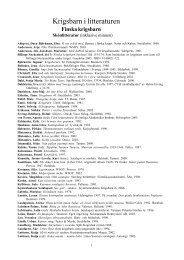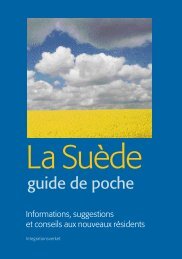Internationalisation, intercultural communication and intercultural ...
Internationalisation, intercultural communication and intercultural ...
Internationalisation, intercultural communication and intercultural ...
Create successful ePaper yourself
Turn your PDF publications into a flip-book with our unique Google optimized e-Paper software.
Journal of Intercultural Communication, Issue 11, 2006<br />
J. Stier<br />
Pulling the Strings Together<br />
The internationalisation of higher education is an unavoidable fact. In this endeavour at<br />
least three divergent ideologies are present. A common denominator for them, however,<br />
is how they recognise the importance of ICE.<br />
The rationale for this article, among other things, has been to discuss a more up-topar<br />
version of ICE <strong>and</strong> its learning outcomes. It was suggested that idealtypical outcomes<br />
of ICE relate to six areas of <strong>intercultural</strong> competence (the six ‘c’s). Three of these<br />
Intercultural Programmes’ Student Outcomes (IPSO) refer to meta-competences <strong>and</strong> extend<br />
beyond ‘knowing that’ <strong>and</strong> ‘knowing how-aspects of culture’ (<strong>and</strong> go beyond much<br />
traditional ICE). Instead they are about knowing why <strong>and</strong> or even knowing why one knows<br />
why <strong>and</strong> not knows why. Hence, <strong>intercultural</strong> competence is the ability to reflect over,<br />
problematise, underst<strong>and</strong>, learn from, cope emotionally with <strong>and</strong> operate efficiently in<br />
<strong>intercultural</strong> interaction-situations. Possessing this competence is likely to increase students’<br />
future ‘employability’ on the labour market.<br />
Moreover, the preferred six ‘i-characteristics’ of ICE are prime Features of Academic<br />
Curricula <strong>and</strong> Teaching Orientations (FACTO) <strong>and</strong> make up a fertile ground for <strong>intercultural</strong><br />
learning <strong>and</strong> acquisition of <strong>intercultural</strong> competence. By putting the IPSO <strong>and</strong><br />
FACTO together a slightly new approach to ICE is available. This IPSO FACTOapproach<br />
is to be seen as one attempt to summarise, visualise <strong>and</strong> convert the assumptions,<br />
goals, foci <strong>and</strong> concepts that constitute a large part of ICE into a tentative educational<br />
working-model.<br />
But before such a model can be implemented <strong>and</strong> become a valuable aspect of<br />
higher education, educators, researchers <strong>and</strong> university administrators must spell out<br />
<strong>and</strong> openly discuss the aims <strong>and</strong> underlying ideologies of ICE. They need to set aside<br />
personal prestige, end old academic feuds <strong>and</strong> instead identify mutually acceptable<br />
compromises, in order to uncover <strong>and</strong> deconstruct widely spread preconceptions that<br />
taints much of current ICE – <strong>and</strong> which they, if they are not careful, unintentionally <strong>and</strong><br />
continuously reproduce. And even if the most obvious area of application of such a<br />
model presumably is curriculum-development, pedagogical refinement <strong>and</strong> production<br />
of study material in higher education, it has the potential to inspire <strong>and</strong> widen the scope<br />
of research in the field as well.<br />
9


